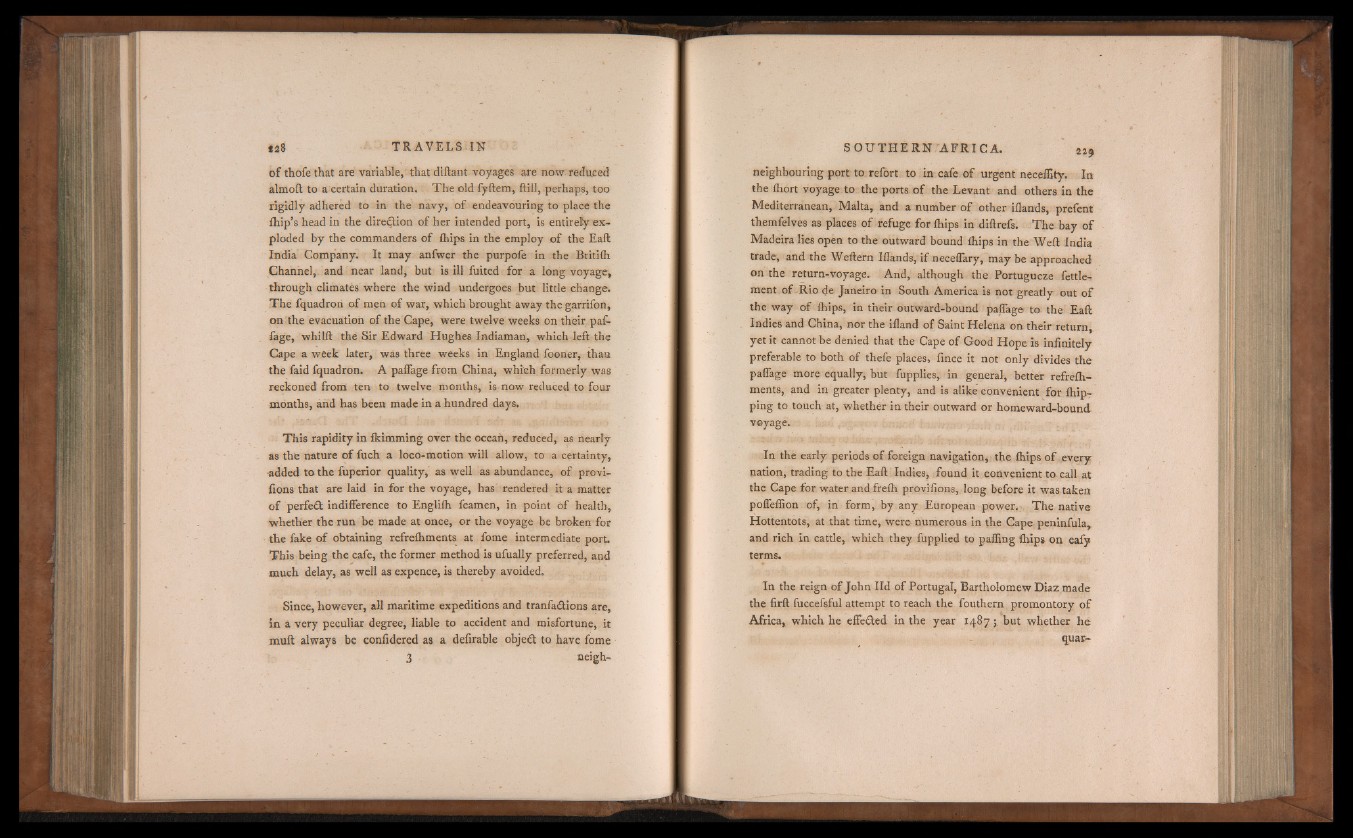
of thofe that are variable, that diftant voyages are now reduced
almoft to a certain duration. The old fyftem, ftill, perhaps, too
rigidly adhered to in the navy, of endeavouring to place the
ihip’s head in the direction of her intended port, is entirely exploded
by the commanders of ihips in the employ of the Eaft
India Company. It may anfwer the purpofe in the Britifti
Channel, and near land, but is ill fuited for a long voyage,
through climates where the wind undergoes but little change.
The fquadron of men of war, which brought away the garrifon,
on the evacuation of the Cape, were twelve weeks on their paf-
fage, whilft the Sir Edward Hughes Indiaman, which left the
Cape a week later, was three weeks in England fooner, than
the faid fquadron. A paffage from China, which formerly was
reckoned from ten to twelve months, is now reduced to four
months, and has been made in a hundred days.
This rapidity in fkimming over the ocean, reduced, as nearly
as the nature of fuch a loco-motion will allow, to a certainty,
-added to the fuperior quality, as well as abundance, of provi-
fions that are laid in for the voyage, has rendered it a matter
of perfe£t indifference to Engliih feamen, in point of health,
whether the run be made at once, or the voyage be broken for
the fake of obtaining refrelhments at fome intermediate port.
This being the cafe, the former method is ufually preferred, and
much delay, as well as expence, is thereby avoided.
Since, however, all maritime expeditions and tranfa&ions are,
in a very peculiar degree, liable to accident and misfortune, it
muff always be confidered as a defirable objedl to have fome
3 neighneighbouring
port to refort to in cafe of urgent neceffity. In
the ihort voyage to the ports of the Levant and others in the
Mediterranean, Malta, and a number of other iflands, prefent
themfelves as places of refuge for Ihips in diffrefs. The bay of
Madeira lies open to the outward bound ihips in the Weft India
trade, and the Weftern Iflands, if neceffary, maybe approached
on the return-voyage. And, although the Portugueze fettle-
ment of Rio de Janeiro in South America is not greatly out of
the way of ihips, in their outward-bound paflage to the Eaft
Indies and China, nor the ifland of Saint Helena on their return,
yet it cannot be denied that the Cape of Good Hope is infinitely
preferable to both of thefe places, fince it not only divides the
paffage more equally, but fupplies,' in general, better refreih-
ments, and in greater plenty, and is alike convenient for fhipT
ping to touch at, whether in their outward or homeward-bound
voyage.
In the early periods of foreign navigation, the fhips of every
nation, trading to the Eaft Indies, found it convenient to call at
the Cape for water and frefh provifions, long before it was taken
poffeffion of, in form, by any European power. The native
Hottentots, at that time, were numerous in the Cape peninfula,
and rich in cattle, which they fupplied to pafiing ftvips on eafy
terms.
In the reign of John lid of Portugal, Bartholomew Diaz made
the firft fuccefsful attempt to reach the fouthern promontory of
Africa, which he effe£ted in the year 1487; but whether he
q u a r -